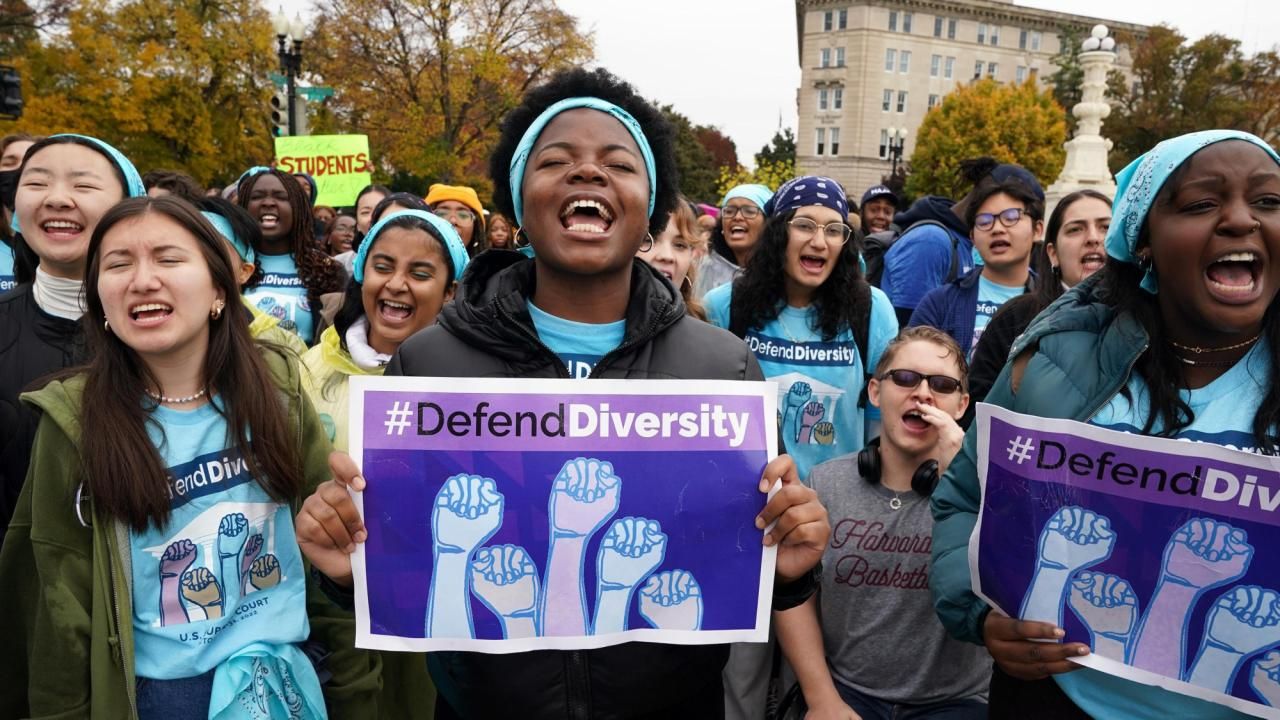Editorial: Supreme Court needs to follow the law, uphold UNC affirmative action in admissions

CBC Editorial: Tuesday, Nov. 1, 2022; editorial #8799
The following is the opinion of Capitol Broadcasting Company
If the U.S. Supreme Court does away with affirmative action in college admissions, as it appears poised to do after it heard arguments over a challenge to the policies at the University of North Carolina at Chapel Hill Monday, it won’t be because of the law or the facts.
It will be because a majority on the court just doesn’t like it.
“I've heard the word ‘diversity’ quite a few times,” Justice Clarence Thomas said to Ryan Park, North Carolina’s solicitor general who was arguing on behalf of UNC. “And I don't have a clue what it means. It seems to mean everything for everyone.”
“Diversity is our nation's greatest source of strength, but as our Reconstruction founders understood and our nation's history confirms, it also poses unique challenges to the American experiment,“ Park said in his opening remarks to the high court.
“Your brief repeatedly refers to certain students as members of underrepresented minorities, right?,” Justice Samuel Alito asked Park. “What does that mean? Why is that significant?”
“This is helpful because this pierces the main … misunderstanding about how our process works,” Park responded. “We do define certain groups based on their overall representation in the state of North Carolina.”
Pretty simple.

Standing outside the Supreme Court building and wearing a Carolina blue Old Well tie, UNC Chancellor Kevin Guskiewicz cut through the legalese: “Today was really about values. Today was about the value of diversity. It's a fundamental value that is core to our mission at Carolina. For that reason, we believe in our holistic admissions process.”
He wasn’t simply spouting a platitude. He was expressing the essence of education at UNC. “To honor the University charter’s charge to ‘prepare a rising generation’ for the responsibilities of democracy, we must ensure our graduates are ready to embrace this country’s remarkable pluralism,” Guskiewicz said in a statement before the court met. “At Carolina, we are building better citizens and if we remove race as one of the many factors we consider in admission decisions, we jeopardize that effort. Our students are preparing to enter diverse workforces and if they do not have experience on group projects or in their dorm rooms with people who have different perspectives and life experiences, they will fall short of their potential.”
Justice Elena Kagan, who had been the dean of Harvard University law school before becoming President Barack Obama’s solicitor general, said universities “are the pipelines to leadership in our society. It might be military leadership. It might be business leadership. It might be leadership in the law. It might be leadership in all kinds of different areas.”
She continued: “If universities are not racially diverse … well then all of those institutions are not going to be racially diverse either. … I thought that part of what it meant to be an American and to believe in American pluralism is that actually our institutions … are reflective of who we are as … a people in all our variety.”
Affirmative action in education, Justice Sonia Sotomayor pointed out, is fundamental to the Constitution.
“Why is it that in the Reconstruction era, just when the 13th, 14th amendments were being passed, Congress spent a lot of money in trying to get black children, whether they were children of slaves or free slaves, to be educated in integrated schools? They had a belief, didn't they, that integration itself provided a value.”
Repeatedly since 2003 and as recently as 2016 the Supreme Court has upheld that universities could positively consider race among multiple factors in making admissions decisions.
Why is it appropriate to use -- some might say “discriminate” -- in admissions on the basis of say, county of residence, service in the armed forces, where a parent went to college or is active military – to name a few? You get the idea. Not considering race, gender or ethnicity, as part of the overall evaluation might be, by their absence, discrimination.
Diversity and inclusion are critical to a well-rounded education that prepares students to effectively engage in a society that treats people with dignity and respect.
It is fundamental to our democracy and the Supreme Court should not divert from that mission.
Capitol Broadcasting Company's Opinion Section seeks a broad range of comments and letters to the editor. Our Comments beside each opinion column offer the opportunity to engage in a dialogue about this article.
In addition, we invite you to write a letter to the editor about this or any other opinion articles. Here are some tips on submissions >> SUBMIT A LETTER TO THE EDITOR









